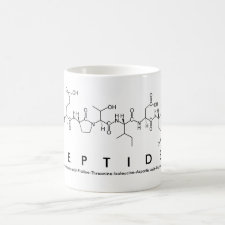
Authors: Wu YL, Lu J, Lin XY, Gao J, Chen L, Cui JY, Lv P, Liu XL, Meng MJ, Yan YS
Article Title: Bioinspired Synthesis of Janus Nanocomposite-Incorporated Molecularly Imprinted Membranes for Selective Adsorption and Separation Applications.
Publication date: 2018
Journal: ACS Sustainable Chemistry & Engineering
Volume: 6
Issue: (7)
Page numbers: 9104-9112.
DOI: 10.1021/acssuschemeng.8b01442
Abstract: Inspired from the biomimetic polydopamine (pDA)-based self-polymerization technique and Janus nanocomposite structure, an efficient yet simple method of pDA@Au-based Janus-incorporated molecularly imprinted nanocomposite membranes (MINCMs) has been developed. The Janus nanocomposite was obtained by using pDA nanospheres as the supports, and the catechol-reduced Au nanoparticles from Au ions were then grown on the surfaces of pDA nanospheres. Highly regenerative performance and selective separability toward tetracycline (TC) were finally obtained. Because of the formation of this membrane-based Janus nanocomposite surfaces, largely enhanced TC-rebinding capacities (67.43 mg/g), permselectivity (separation factors were all more than 10.5) and rebinding stability (93% of the saturated adsorption capacity after 11 cycling adsorption/desorption cycles) were finally obtained. These results strongly illustrated that incorporation of the Janus nanocomposite into molecularly imprinted membranes would achieve both the high rebinding capacity and the excellent permselectivity. All the synthesis processes were carried out at low temperature and ordinary pressure, which were energy-efficient and environmentally friendly for large-scale applications
Template and target information: tetracycline, TC
Author keywords: Janus nanocomposite, pDA-inspired modification, selective adsorption and separation, TC-imprinted membrane



Join the Society for Molecular Imprinting

New items RSS feed
Sign-up for e-mail updates:
Choose between receiving an occasional newsletter or more frequent e-mail alerts.
Click here to go to the sign-up page.
Is your name elemental or peptidic? Enter your name and find out by clicking either of the buttons below!
Other products you may like:
 MIPdatabase
MIPdatabase









